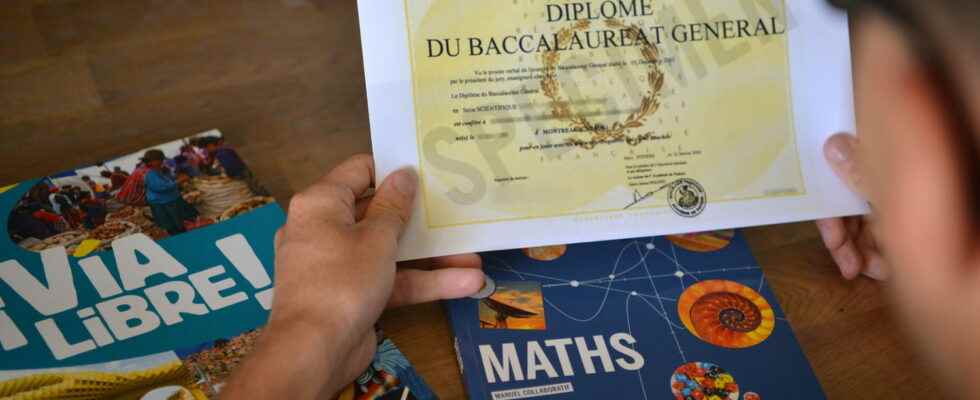LLCER PROOF. The Bac 2022 specialty exams will be held in mid-May. For those who have opted for “Languages, Literature and Foreign and Regional Cultures”, the written exam will take place on Thursday, May 12, from 2 p.m. to 5.30 p.m. Discover the tracks on the potential subjects and the course of the test.
Last straight line for revisions of modern languages and foreign cultures! The “Languages, Literature and Foreign and Regional Cultures” (LLCER) test for the Bac 2022 is announced for May 12, during the short session of the specialty tests. This education has existed for students in Première and Terminale since the implementation of the baccalaureate reform: students choose one of the twelve specialty subjects available. To appeal to high school students, the field of areas studied in language lessons has been broadened, adding to grammar an advanced teaching of foreign cultures and civilizations. Fundamental objectives have been established for this specialty. They are common to the four living foreign languages (German, English, Spanish and Italian) and to the seven living regional languages (Basque, Breton, Catalan, Corsican, Creole, Occitan-langue d’oc, Tahitian). It is a question in particular of favoring a detailed knowledge of languages in their relation to History, but also an assured mastery of the language and an understanding of the associated culture.
The program, on which the high schools will be assessed on the day of the Bac, varies from one language to another. In all cases, it is structured around two themes, themselves subdivided into areas of study. The written specialty test being organized for the first time since the entry into force of the reform of the baccalaureate, it is difficult for candidates to know what to expect. From the dates, to the probable subjects, through the course and the arrangements of the test, here is everything you need to know about the LLCER specialty exam.
The Foreign and Regional Languages, Literature and Cultures test was normally to take place like all the other specialty education exams in March, but the Ministry of National Education has decided to postpone the series of tests to May to prevent certain candidates from being penalized by the consequences of the Covid-19 epidemic on the school system. It is therefore between May 11 and 13 that the events are held, and that of LLCER is organized on Thursday, May 12 from 2 p.m. to 5:30 p.m. according to the latest details of theStudent.
The course of the LLCER specialty test is a little special, in the sense that the exercises requested have no connection with the calendar of the final tests: they will be limited to the program specific to this discipline, and to the language of study chosen by the candidate. These programs are limited and partially or fully renewed every two years. This year, the test will focus on two of the three themes studied during the year. One of these three themes will not be assessed on the baccalaureate day and is therefore not to be prioritized in your revisions. However, it is preferable not to ignore them completely: the subjects can be cross-cutting, certain knowledge can help candidates in front of their copy. Discover the two themes that can be the subject of the LLCER test depending on the language you have chosen:
- English: “Imaginaries” or “Encounters”
- Italian: “Imaginaries” and “Powers and counter-powers”
- German: “Imaginaries” and “Representations and expressions of memory”
- Spanish: “Circulation of people and ideas” and “Diversity of the Spanish-speaking world”
The written specialization test in Foreign and Regional Languages, Literature and Cultures will last 3h30 this year, while the oral should last 20 minutes (the date of the oral passages is not yet known), regardless of the language assessed. . This year, the candidates will have two subjects relating to two different themes of the program, which will allow them to choose (knowing that three themes are studied in all). The test is done in two parts: first, a summary in a foreign language, out of 16 points. Using a corpus of documents and guided by several questions, you will have to write 500 words. Then, the second exercise consists of a translation or transposition into French, marked out of 4 points. The statement will specify whether you must translate a passage of 600 characters from a text in the file or report the overall idea of a text.
The subject rule relating to two of the three themes covered in terminale is valid for all languages. But the test of the “contemporary world English” specialty has some specificities. Indeed, a press text replaces the literary text in the synthesis. In addition, while a B2 level is required in most languages of the LLCER specialty, you must have a C1 level in English. One last point: you have the right to bring a unilingual non-encyclopaedic dictionary on the day of the test.
A priori, the results of the specialty test of Languages, Literature and Foreign and Regional Cultures will be available on July 5, at the same time as the results of the other tests (French, philosophy and major oral). The fact that specialty courses are evaluated one month earlier does not affect the publication of the results.
